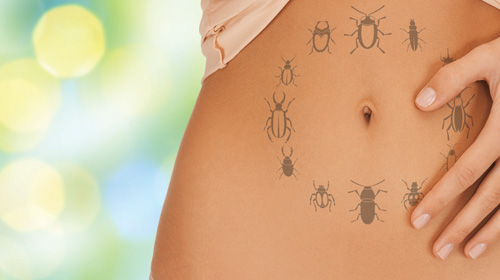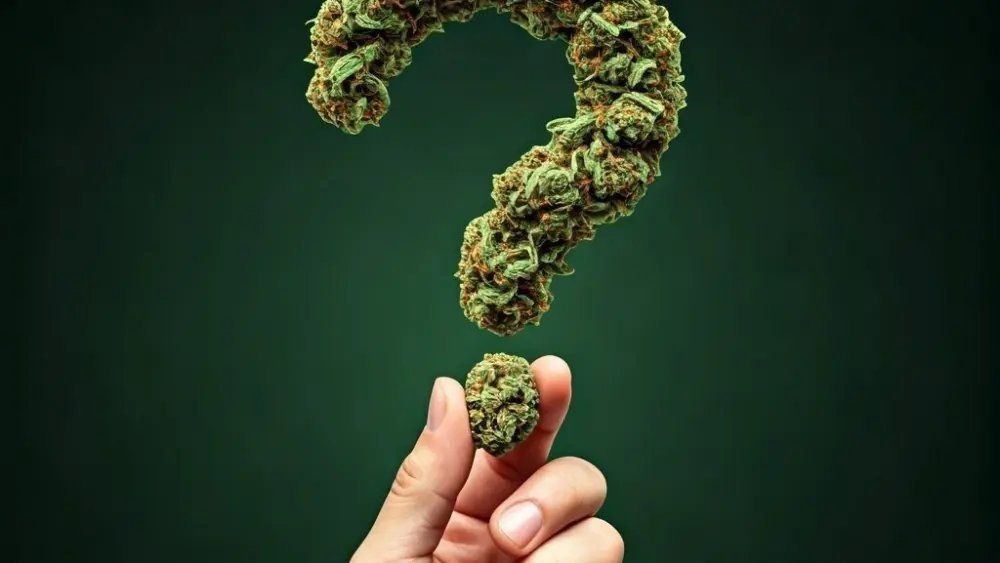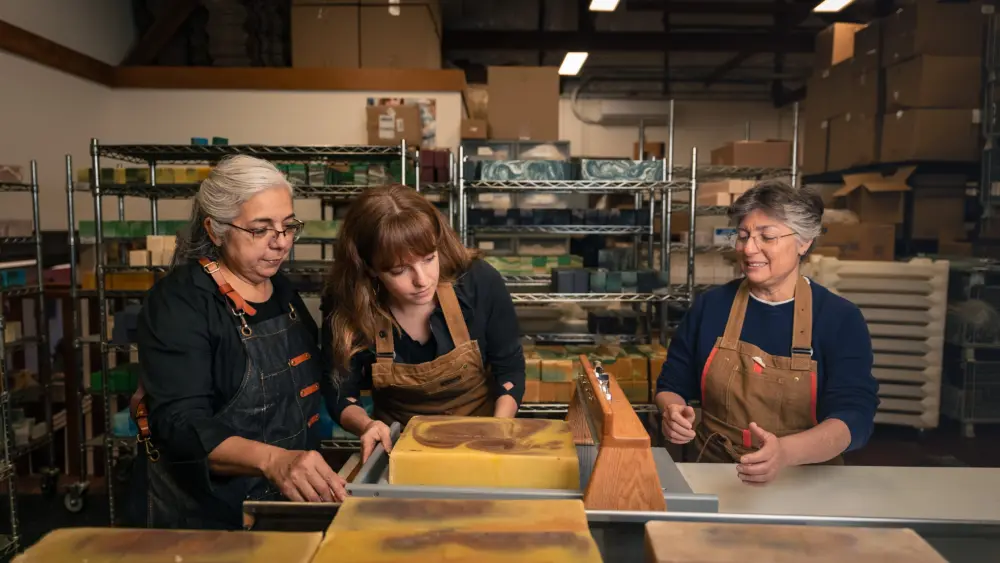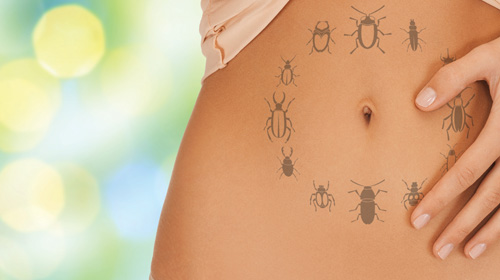
What has 100 trillion members, can make you feel exuberant or depressed, are as unique to you as a fingerprint and weighs less than four-and-a-half pounds? Give up? The colony of microorganisms, or “microbiota,” as they’re properly called, that live in our gut. These are colonies of microorganisms living in your intestines, and as medical science is learning, these microorganisms have a lot to do with your health. Gut bugs facilitate digestion, influence your metabolism, strengthen your immune system and maintain your mental well-being—when they’re happy. But as medical scientists are learning, when they are not happy, our microbiota play a key role in a surprising array of illnesses ranging from general un-wellness to rheumatoid arthritis, irritable bowel syndrome, inflammatory bowel disease (IBS), allergies, asthma, headache, fatigue, anxiety and even depression.
Given what medical science is learning about the microbiome—the term used to describe the all the genetic material in our microbiota—as a nation, we have a serious problem. Despite spending more than $38 billion a year on probiotics in food, over-the-counter supplements and creams in 2018, the U.S. led the world in digestive problems with 22 percent of adults diagnosed with gastrointestinal conditions. In the North Bay, we have the necessary elements—food, weather and lifestyle to relate to and work with our microbiome to improve overall health. While many questions remain unanswered, responsible doctors will caution readers, who may have serious symptoms, about self-diagnosis in this complex field of cause and effect. Meanwhile, there are some basic, manageable steps you can take to improve your health right now.
A closer look at microbiota
The profile of the microbiota in the gut of each person is the result of a complex set of conditions, according to Babak Kanani, M.D., a holistic-integrative specialist at Sutter Health in Greenbrae. Your particular microbiome is configured by where you were born, how you came into the world, the culture in which you grew up, whether you were breast-fed, what you eat, what medications you take and what other conditions you have such as disease and stress. Your microbiome evolves throughout your life, eating and interacting with your environment. “It happens that, for example, people who come from Asia or South and Central America who go on an American diet, definitely can experience a change in their gut bacteria,” says Kanani. 
“Even within one country, people might have different microbiomes. For example, if you’re on a vegetarian diet as opposed to a paleo [meat] diet, you’re going to encourage the growth of different bacteria.” Growing a diversity of bacteria helps the immune system, he explains, so that babies get a big dose of their mother’s bacteria as they emerge into the world, which helps build their immune system. “Babies born by Caesarian section, or who [later] take antibiotics, or don’t have a varied diet, or eat a lot of refined carbohydrates may not have the right diversity of bacteria,” he says. An unbalanced microbiome can foster serious consequences.
Kanani gives the example of a patient who came to see him, with severe acne and joint pain, as well as arthritis and acne rosacea. Unlike acne, these were cystic boils accompanied by fatigue. “We tested his stool [to get a general profile of his microbiota] and he obviously had an imbalance and I put him on a protocol of herbs, not antibiotics,” says Kanani. The patient followed the course of herbs for three months before he began to see a difference. “He initially felt a worsening of his condition,” he says, explaining this is not uncommon. “You see this sometimes—where something will get worse before it gets better. It’s because oftentimes, the unhealthy bacteria are dying off and they release toxins.” The patient continued with the program, and eventually his acne subsided as well as his joint pain and inflammation. When the patient was ready, Kanani prescribed an anti-inflammatory supplements to change the patient’s diet. “I changed him to a paleo diet because it’s low carb, and eliminates a lot of the foods that can irritate the intestinal lining and feeds the unhealthy bacteria. He saw a dramatic response from that.” The treatment underscores the importance of the right kind of food for an individual’s particular need.
“I have other cases where people with rheumatoid arthritis and people with irritable bowel syndrome and severe diarrhea, gas and bloating, who can barely tolerate eating anything,” says Kanani. “They have to be on restrictive diets. We’ll do a breath test and find they have fermentation in their gut and we’ll clear that out, and then slowly we’ll liberalize the diet and heal the gut lining.” The goal is to restore a varied diet to support a diverse microbiota. “Then, as you introduce new foods, you introduce probiotics.”
Probiotics
When your body house colonies of microbes, it usually results in taking a prescribed antibiotic to kill off the bad ones making you sick. The antibiotics kill the bacteria, healthy and unhealthy, and after the antibiotic has run its course, it’s important to take probiotics to restore the good bacteria. Or, perhaps you’ve read that taking probiotics is good of your health. In either case, it’s likely that you’ve stood in front of shelves of what seems like thousands of different brands of probiotics wondering what they are. Which one does what? Is one of them best? How much need we pay? And maybe giving up and buying some yogurt, instead.
“Probiotics are big right now,” says Kim Kulp, registered dietitian nutritionist, digestive health, anxiety, and depression specialist at St. Joseph Outpatient Behavioral Health. She also has her own practice in Marin County called, Health Tastes Great! “While there are many probiotics to choose from, they’re all different. Some contain one strain of bacteria, while others have multiple strains—each one is studied for a particular area of concern. One strain might be helpful for anxiety and depression, while another may be more helpful for particular digestive issue. Other strains may be helpful for diarrhea, or gas. It’s important to know that you’re taking one that will be helpful for a particular issue.” She warns that while some probiotics may be helpful to one person, the same probiotic may make another feel worse. “I always caution my clients because we all have different organisms in our own gut, and now we’re adding something else.”
Prebiotics
If probiotics are the bacteria, prebiotics are the foods that feed those bacteria. While they’re important to include in the diet, it’s important to choose the right ones. “What is good for one person may not work for another,” says Kulp. Prebiotics include foods such as onions, garlic, wheat bran, oats, asparagus, artichokes and green bananas. “Those are good foods, but they also can cause digestive distress for some people,” she says. People with IBS or Inflammatory Bowel Disease (IBD), conditions characterized by abdominal pain, gas, bloating, diarrhea, constipation, are particularly susceptible to distress from the carbohydrates in prebiotic foods.
 “These are particular kinds of carbohydrates that are not well-absorbed by some people, and instead of being absorbed in our small intestine where we normally would these nutrients, they travel down to the large intestine, where the resident bacteria rapidly ferment those carbohydrates that would normally have been absorbed higher up in the intestine,” Kim says. The result is gas and bloating, and all the uncomfortable symptoms that go along with IBS. “What we’ve found is that when you take those FODMAP foods out of the diet, people can sometimes feel better fairly quickly, sometimes in a couple of weeks,” she says. However, she still advises caution.
“These are particular kinds of carbohydrates that are not well-absorbed by some people, and instead of being absorbed in our small intestine where we normally would these nutrients, they travel down to the large intestine, where the resident bacteria rapidly ferment those carbohydrates that would normally have been absorbed higher up in the intestine,” Kim says. The result is gas and bloating, and all the uncomfortable symptoms that go along with IBS. “What we’ve found is that when you take those FODMAP foods out of the diet, people can sometimes feel better fairly quickly, sometimes in a couple of weeks,” she says. However, she still advises caution.
“It’s important to work with a FODMAP trained dietitian and not cut out foods over the long term that you need for a healthy balance.” She says it’s best to have the widest variety of foods in your diet as possible. “Every different food has a different nutrient profile. Even two different grains are going to have different nutrients. Variety is important,” she says. “And part of what I help people do is expand that, both for pleasure and health.”
The gut-brain axis
What is this “gut-brain axis?” According to Kulp, researchers are currently looking at a two-way communication between the gut and the brain. They’re finding that what you eat can generate inflammation, which in turn can lead to a number of diseases, and in some cases depression and anxiety.
Kulp is particularly interested in working with people with symptoms of depression and anxiety, but is quick to caution that no one solution cures all. “With depression and anxiety, it’s getting the diet honed so it can help the gut-brain axis,” says Kulp. “In addition, neurotransmitters like serotonin and dopamine and GABA (much of these neurotransmitters, which are designed to help us feel good, are actually manufactured in the gut) can be affected by different microorganisms.” With all this communication going on between the gut and the brain, it’s becoming clearer that what you eat can affect your mood.
However, she cautions against self-diagnosing and jumping to conclusions. “The hard part with food, is that it can take 12 to 48 hours from the time you eat something for it to travel all the way through your system,” she says. It’s difficult to pinpoint a direct cause and effect. “If a food bothers you—and this is where there’s a connection between people with IBS and depression and anxiety—what you’ve eaten can change how you’re feeling physically and can also change inner bacteria.”
When making nutritious recommendations, Kulp looks at individual foods as well as eating patterns, overall diet and circumstances. It’s all individual, she says. “I saw four patients this morning with varying levels of anxiety and depression, and they all are doing different things. Some people overeat, some people skip meals, and some people are choosing what they think are healthy foods, but they’re not in the right ratios to get the right nutrition for them. Some people are following a diet that they may have heard about being good for them (such as the paleo diet, a current favorite, which favors foods available to our cave-dwelling ancestors) or good for something else.” According to Kulp, each situation must be considered individually.
Fecal Microbiota Transplantation
There is a probiotic treatment for one specific condition that is simple, relatively quick, and 75 percent successful, (which is high in medical terms.) The name is not so nice, but the satisfaction is. Paul Kefalides, M.D., board-certified gastroenterologist with Kaiser Santa Rosa, swears by it. “The most dramatic therapy in medicine today that uses a probiotic is Fecal Microbiota Transplantation [FMT],” says Kefalides. “This is used for a specific infection in the colon that develops because of an imbalance of colonic material induced by antibiotics.”
The infection is called clostridium difficile or C.diff. “This is sort of a scourge of hospitalized patients, often complicating hospitalization because it develops after antibiotic therapies and often afflicts people with impaired immune systems or people with less vitality, such as the elderly, who have trouble reconstituting their microbiomes,” he says.
The procedure is simple. “When we do stool transplants, we’re basically putting healthy donor fecal 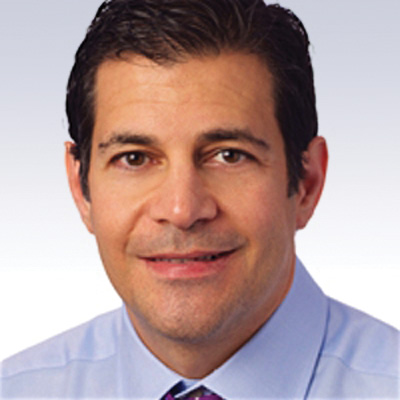 matter into the patient’s small intestine or colon,” he says. The donor material to be transplanted comes from a reliable stool bank. “There are donor stool banks now where donors are screened and the stool is checked for infection. The stool is banked there and then delivered to hospitals where it’s put into the intestines of people who are suffering from this particular symptom. In eight out of nine people, the symptoms will be dramatically relieved by the treatment.”
matter into the patient’s small intestine or colon,” he says. The donor material to be transplanted comes from a reliable stool bank. “There are donor stool banks now where donors are screened and the stool is checked for infection. The stool is banked there and then delivered to hospitals where it’s put into the intestines of people who are suffering from this particular symptom. In eight out of nine people, the symptoms will be dramatically relieved by the treatment.”
Though the idea of hosting someone else’s fecal matter may make you squeamish, Kefalides explains that when a patient has had a severe or recurrent problem, such as C.diff, they’re in such discomfort they’re open to new ideas. “We explain that the C.diff infection is the result of an imbalance of bacteria and we need to improve that balance or restore that balance by giving them that good bacteria,” he says. “Most patients gravitate to the idea.”
Studies are being done to determine the potential for using FMT for treating obesity, metabolic syndromes, cardiovascular complications, autoimmune conditions and for some bowel disease.
“It’s an exciting area,” says Kefalides. He explains that microbiome participates in these conditions. So, there are knowns: “There’s no question that a patient’s microbiome is an active participant in their metabolism and in their immunity.” And there are unknowns: “But it’s harder to say with greater clarity how that occurs and how it can be modulated.” Nevertheless, promising areas are opening up for physicians, patients and people who want to learn about and improve their overall health.
“What’s exciting is that we know now that there are these relationships between the microbiome, your immunity, your health, your metabolism and maybe even your mood and your autoimmunity,” says Kefalides. “This has opened up a whole new realm of research.”
Creating a path to health
First, for those with serious symptoms or discomfort, do not struggle alone. Holistic-integrative health specialists such as Kanani can lead you on your individual journey to health. For intestinal disease, gastroenterologists such as Kefalides can find the right protocols for your illness. And for those exploring path of nutrition, choose a reputable, registered dietitian/nutritionist, such as Kulp to help you to create your own, individual path to health.
Also, warns Kefalides, beware of advertising miracles. “The Internet scientists play a little fast and loose with the scientific data,” he says. “The bench data and basic research sometimes may get extrapolated by someone who wants to sell a product. The conclusions may be an exaggeration of where medical science is right now.”
Finally, if you’re feeling good and looking to stay that way or improve your health, medical science is learning that the best strategy is to take advantage of the bountiful fruits and vegetables, fresh air and natural beauty of the North Bay.
“It’s important to take care of yourself by eating healthy, nutrient-rich foods instead of going for something that’s quick and easy,” says Kanani. “Focus on the known—foods that are locally grown by small farms, that are organic, not by huge farms using industrial methods and pesticides and shipping them from far away. Stay away from refined carbohydrates high in refined sugars.” He advises following the words of food writer Michael Pollan who says: “Eat food. Not too much. Mostly plants.”
let your kids play in the dirt
Is too much cleanliness not a good thing? Studies show that kids exposed to different organisms at an early age have fewer incidences of eczema, asthma and allergies later in life. It seems the immune system, having come in contact with a wide variety of bacteria that live in nature, in the soil, among animals, learns not to over-react to the outside world as much because it was exposed to pollen and bugs in the soil and trees early on and has built up a tolerance. Though Babak Kanani, M.D., doesn’t treat children he encourages his daughter to play in the dirt. “She was born C-section, and it was important for her to be breastfed because the breast milk contains probiotics from the mother. That’s important for kids who are born by C-section.” Contact with skin is also helpful. “I would lay my daughter on my chest. Babies’ mouths are always open and they’re slobbering all the time. They pick up the bacteria on your skin, and that’s a way to get the microbiome too, for babies.”
Read more: The Hygiene Hypothesis:
www.ncbi.nlm.nih.gov/pmc/articles/PMC1448690/
a word on supplements
“Medical literature is full of negative trials where they try to exogenously provide supplements or vitamins,” cautions Paul Kefalides, M.D. “And they never can replicate the effect of natural diet.” For example, observational trials showed that dietary fiber was favorable in effecting colon cancer but trials using fiber supplements were not found successful in reducing the risk of colon cancer. “It’s good to have fiber in your diet; it’s probably better for your colon in many ways, but it has to be natural fiber from food, not a supplement in a can.”
Should you get your nutrients from food or supplements?
Visit www.health.harvard.edu/staying-healthy/should-you-get-your-nutrients-from-food-or-from-supplements for more info.
what’s the matter with gluten?
Not everything is the imbalanced microbiome, though all of these conditions seem to be related. Wheat, for example can impact some people in very specific and immediate ways and as soon as the wheat is removed from the diet, the person starts to feel better. Babak Kalani, M.D., says he sees this a lot. “The reason isn’t necessarily the microbiome, per se, but about how inflammatory gluten is to our bodies and to our brains,” he says. Wheat? Bread? Golden waves of grain? The “Staff of Life?” Why? “Because the gluten that’s been cultivated in the United States, starting after WWII is different,” he says. “After the war, they cultivated a type of wheat that was very high in gluten so that it could make that big fluffy bread and then that could be highly resistant to spray–pesticides, so that it could store well and so could be shipped to Europe after WWII.” There was a food crisis in Europe after the war and feeding populations was an urgent need. This new wheat was easy to grow in mass quantities. “But that’s not the type of wheat that we were evolved to digest.”
Read more about wheat production after WWII: https://www.ncbi.nlm.nih.gov/pmc/articles/PMC4240735/
what you can do today to feel better tomorrow
First, try and understand that you and your microbiome are unique. A diet or remedy that’s great for someone else, may or may not work for you. Also, if you retrieve most your information from the Internet, be aware of advice offering simple solutions to complex health problems—they may be selling a product. Most importantly, if what’s bothering you is serious or chronic, seek out a medical expert. A nutritionist or doctor who practices integrative medicine and knows about nutrition–a discipline often lacking in physician’s training–is a good way to start.
Second, eat real food. Michael Pollan, author of Food Rules: an Eater’s Manual, says that that the typical American diet, loaded with added fat, sugar and refined carbohydrates, is conducive to high rates of obesity, type 2 diabetes and heart disease and cancer. His message is simple: “If it’s a plant, eat it. If it’s made in a plant, don’t.” In other words, eat fruits and vegetables and fresh meats, and avoid processed foods with labels containing lists of ingredients you cannot pronounce.
Finally, watch your sugar intake. Pollan notes in his book that you’re probably eating more sugar than you know. High fructose corn syrup is now loaded into all kinds of processed foods, adding to your daily sugar load. He suggests that if the label has sugar or fructose, cane juice or other forms of sugar in the top three ingredients, be aware that the food is loaded with sugar.


